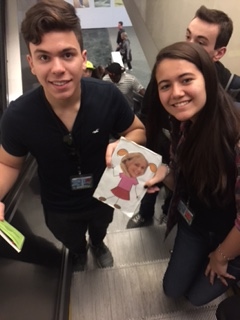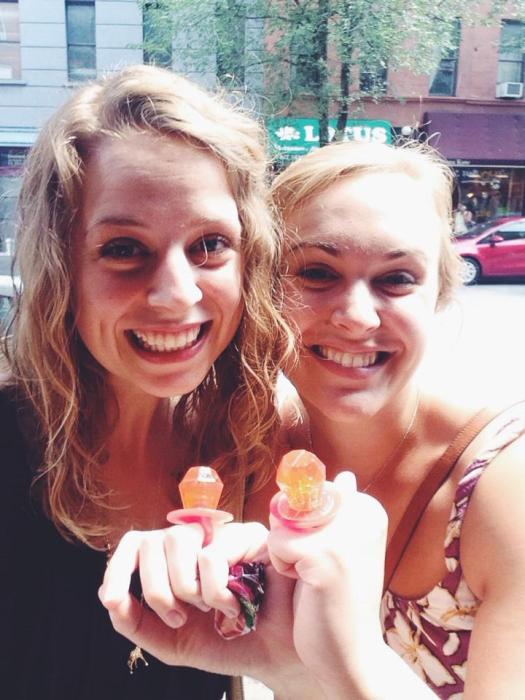 “I love — ” he shouts from behind me, his voice stopping just short of “you.”
“I love — ” he shouts from behind me, his voice stopping just short of “you.”
I turn around and see the surprised, embarrassed look on his face. I make a split-second decision.
“I love you,” I say with conviction, because if you don’t say “I love you” and mean it, you shouldn’t be saying it at all.
I smile big so he knows I don’t feel uncomfortable. I leave these three children I’ve been babysitting in the kitchen as I head down to my car. Saying goodbye at the end of the summer is never easy.
He stops short of saying “I love you” for a few reasons. First, he’s a thirteen-year-old boy, and everyone knows we teach our children (boys, in particular) that expressing love or affection is not cool. He desperately wants to be cool. He wouldn’t let me post a picture of us sipping iced tea because he was afraid of what his friends would think, so I didn’t. I understand ego, even if I have a slightly different perspective. Second, I’m his babysitter. I am not his mom or his aunt or his grandma. If our young boys do express affection and care, it is almost always in the context of family, and I am not that. I can imagine his struggle as he tried to figure out what was going on: Do I love her? How can I? She’s 26 and not related to me. But what is it, then? It’s definitely not a crush. Because that is reason number three: he didn’t want to be misunderstood and have his care confused into something it wasn’t.
[My face most of the summer. They loved stealing my phone and leaving me photographic surprises.]
It’s the last day of summer, and I know deep down it’s my last summer with them. There’s a time and place for a babysitter who takes you to the Museum of Science, the beach, mini golfing, the Museum of Fine Arts, even to Funtown Splashtown, USA. But then you start to feel itchy, like it doesn’t quite fit anymore, and both you and your mom and even your babysitter realize it’s time for a change. You don’t really want it – you do love her, in some strange, mysterious way – and when you hug her, you don’t let go right away because you’re not sure when (or if) you’ll see her again. Will you ever ride the train to Boston again? Or try new things like bubble tea or yoga or hiking Mount Pawtuckaway? You’re excited for eighth grade and high school, but you’re missing your best friend who moved across the ocean, and your grandparents who moved to Florida, and even though you know it’s time, you’re wondering what next summer will look like without this strange loud singing buddy you’ve had for so long.
At least, this is what I imagine is going through his head. I know it’s probably not nearly as spelled out as this, or as worry-filled (because these tendencies come later in life), but I can’t help thinking about his voice in the hallway. How the words flew out of his mouth and he had to stop himself. How many times I’ve done that myself — felt an overflow of emotion that had to be expressed, but my words got strangled in my throat because of fear. We don’t have enough words to express what we feel. No wonder he feels strange saying he loves me; it doesn’t fit our paradigms of love, but there is no other word. And so I say it back to him because it is true, but also to show him that it’s okay to say.
I wonder what he thinks as the screen door closes behind me. I wonder if I embarrassed him. I hope he is able to get past that initial feeling of discomfort because someday, I hope he doesn’t stop short of saying it. I want him to be able to hug people and not let go too soon. I want him to be able to say “I love you,” and to receive that same love back. I want him to be free from coolness and uncoolness, debilitating fear and self-preservation, because when you’re able to let go of these things, love comes a whole lot easier. I wish I could be there to watch him grow into this, but just like my students who graduate every spring, he has to go this one on his own. All I can do is help him see that caring for someone is good and telling them is important. Maybe someday I’ll run into him, all tall and grown. I hope he isn’t afraid to give me a hug.

































